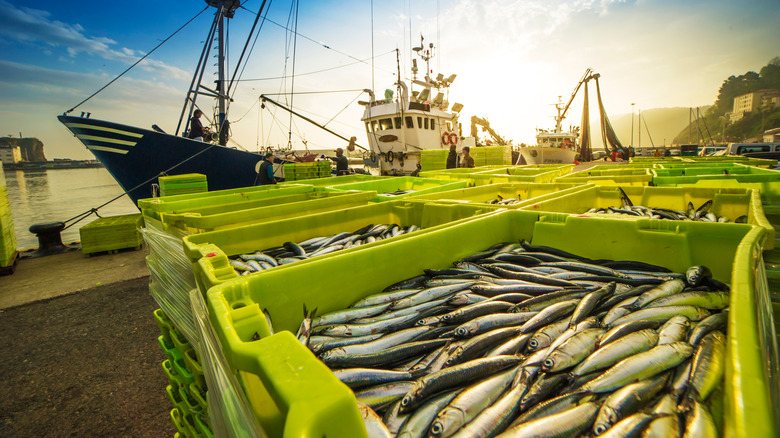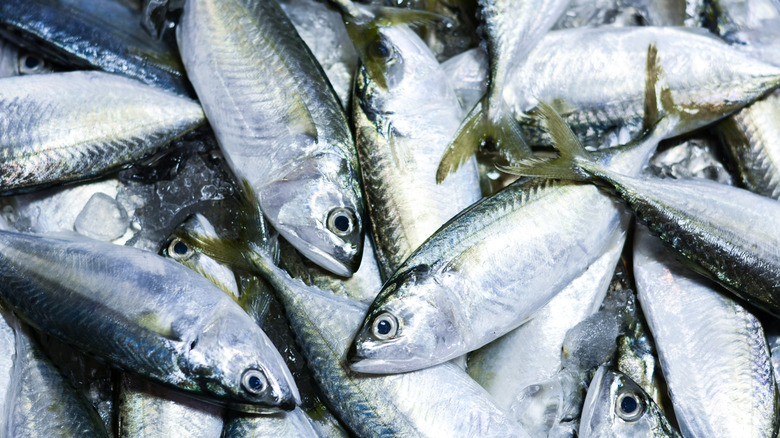This Country Eats More Seafood Than Any Other In The World
Do you love seafood? We know that we sure do. Whether we're grilling a fresh whole snapper, getting spicy with a ceviche, or just mixing up some classic tuna salad, we can really get down on some surf in addition to the turf in our diets. One thing we love about seafood is its versatility: You can go luxe with a whole lobster or some king crab legs, or enjoy a simple, affordable treat such as steamed mussels.
As many of the seafood lovers among us are aware, eating fish and shellfish these days is far from straightforward. According to the Environmental Defense Fund, overfishing of the world's oceans is taking an enormous toll, not only on populations of seafood but also on the people who depend on these protein sources. All over the world, people love to eat fish and shellfish, but there's one nation that out-eats all other countries — and unfortunately, doesn't always do so in the most sustainable way.
China is the world's top consumer of seafood
While people all over the world love seafood — from Japan, where sushi is a way of life, to Portugal, where salt cod reigns supreme — there's one country that leads the world in seafood consumption: China. According to Pittman Seafoods, the Asian nation is by far the world's largest consumer of fish, accounting for 38% of the global total. As the article notes, the average Chinese citizen eats about 90 pounds of seafood per year. While some of that fish is locally fished or raised, according to Pittman Seafoods, the country also imports a significant amount of seafood.
While we can certainly identify with the love of fresh fish, China's poor fishing practices have garnered a fair amount of criticism by proponents of sustainable fishing. According to the Yale School of the Environment, the country has already so depleted its local fishing stocks that it now illegally trawls waters belonging to other countries, such as North Korea. Its massive fishing ships catch as much fish in a week as smaller, more traditional boats might catch in a year.
In 2017, China's government released a five-year plan that will limit the total number of offshore fishing vessels to under 3,000 by 2021, according to the Yale School of the Environment. Yet, as marine biologist Daniel Pauly stated in the article, "Whether they can enforce the planned restrictions onto their fleet is another question."

